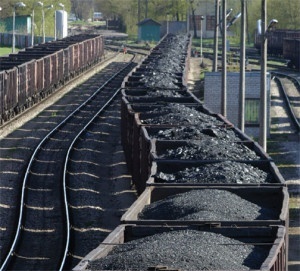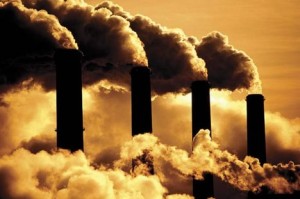We have much more to do and your continued support is needed now more than ever.
Dirty Business: Congress Seeks To Export U.S. Fossil Fuels and Carbon Pollution
In another shameless attempt to undermine sound climate policy and keep the pedal to the metal on dirty fuel production, House Congressional members snuck a provision into the Omnibus Appropriations Bill to halt sensible policies that virtually eliminate U.S. financing of new overseas coal plants in most circumstances. While the immediate impacts of this rider may be minimal, it marks a sad trend among some in Congress to spur further carbon pollution and dirty fuel production by opening international markets to domestic, carbon intensive fossil fuel.

According to NRDC, since 2007, over $9 billion dollars of tax payer money has gone to fund dirty coal plants overseas. The White House Climate Change Action Plan seeks to reverse this situation, which we applaud. This wise policy shift, which Congress is looking to derail, would ensure that essential energy investments by Ex-Im and OPIC in developing countries go to cleaner energy sources, rather than coal plants which spew carbon pollution and foul the water and air that millions of families drink and breathe.
Exporting a Problem
But with the U.S. domestically moving towards cleaner sources of power, the coal industry is looking for ways to access new markets for its coal to be burned. This is the driver behind six proposed plants in the Northwest that would take coal strip-mined from the beautiful Power River Basin in Wyoming and Montana, and ship it to Asia to burn. The Northwest doesn’t want the pollution it will bring, and doesn’t want to be a conduit for more carbon pollution to be generated abroad. As a result, three of these projects have been abandoned and investors are pulling out.
Yet coal’s friends in Congress are still trying to make sure there’s a market abroad to sell this coal. Their aim is to derail an international shift to responsible, renewable energy development that is good for wildlife and our children’s future – but less good for coal industry executives –come bonus time. Fortunately, this one year provision won’t have much practical impact, as neither Ex-Im nor OPIC have current plans to finance coal plants and abroad. Yet the Congressional “hold” on their new policies needs to be removed as quickly as possible to ensure continuation of the positive trend of investments in responsible energy.
Most disturbing about this provision is that it is another signal that the fossil fuel industry is using its influence over Congress to try to lock in new markets where that it can burn an amount of carbon that will virtually guarantee climate calamity. This comes at a time when the U.S. is experiencing an energy “boom” that is dramatically increasing drilling on public and other lands. This boom is the largely reliant on extreme new technologies like “fracking,” which comes with a host of environmental concerns.
This boom is behind Sen. Lisa Murkowski’s (R-AK) similar attempt to examine overturning a ban on exports of U.S. oil. While preaching the need for energy independence, it seems odd that Congressional members would seek to sell U.S. oil abroad, which would likely increase fuel costs for consumers by manipulating supply.

If these efforts are allowed to succeed, domestic progress will be undone, leaving us with more carbon pollution, more drilling on public lands, more water and air pollution from dirty practices like fracking, more habitat destruction, more climate change, and more communities subjected to the risks of transporting dirty fuels by pipe, rail, or tanker.
That’s a lot of risk in return for more profits for coal, oil, and gas executives.
Take a Stand Against Fossil Fuels
It’s critical to support – not undermine – policies that keep carbon in the ground and promote clean, responsible energy. We need to make it loud and clear to Congress that we’re not willing to sacrifice our children’s future for fossil fuel profits.
![]() Protect wildlife, like endangered orcas, from dirty coal that will fuel climate change. Tell lawmakers to deny permits for coal exports in the Pacific Northwest.
Protect wildlife, like endangered orcas, from dirty coal that will fuel climate change. Tell lawmakers to deny permits for coal exports in the Pacific Northwest.





















